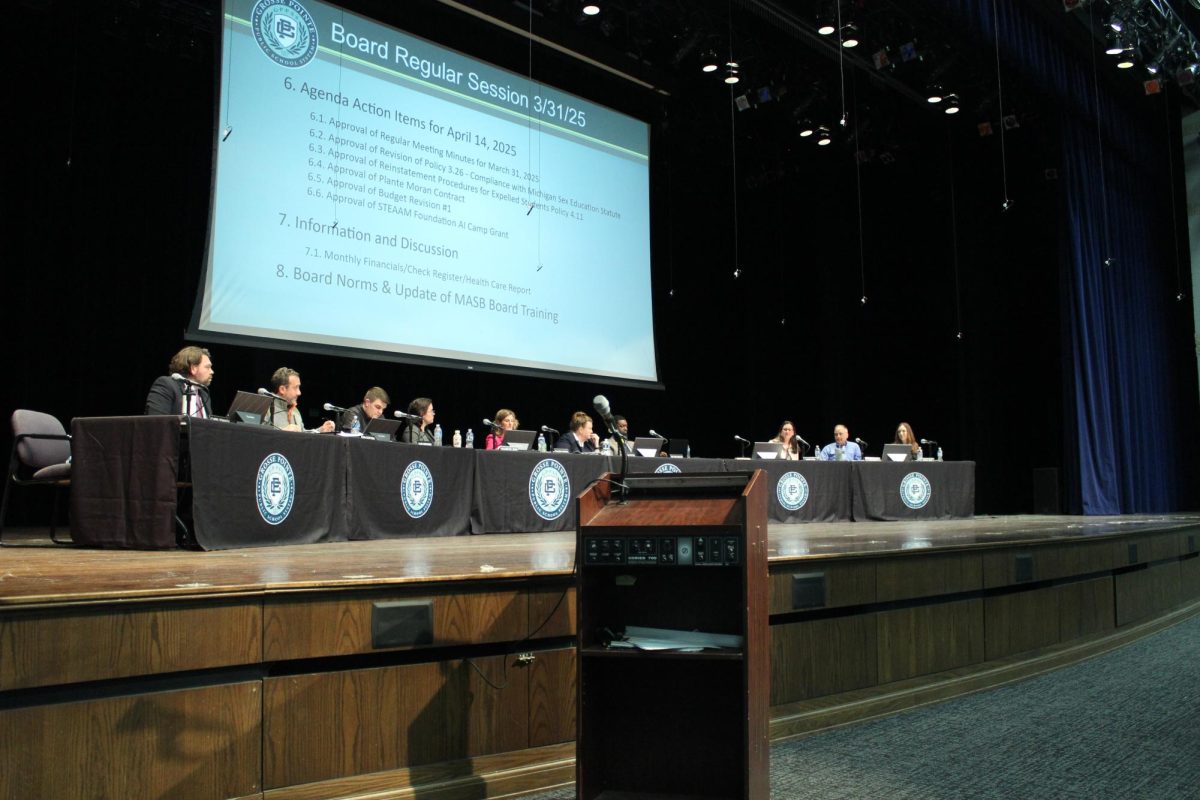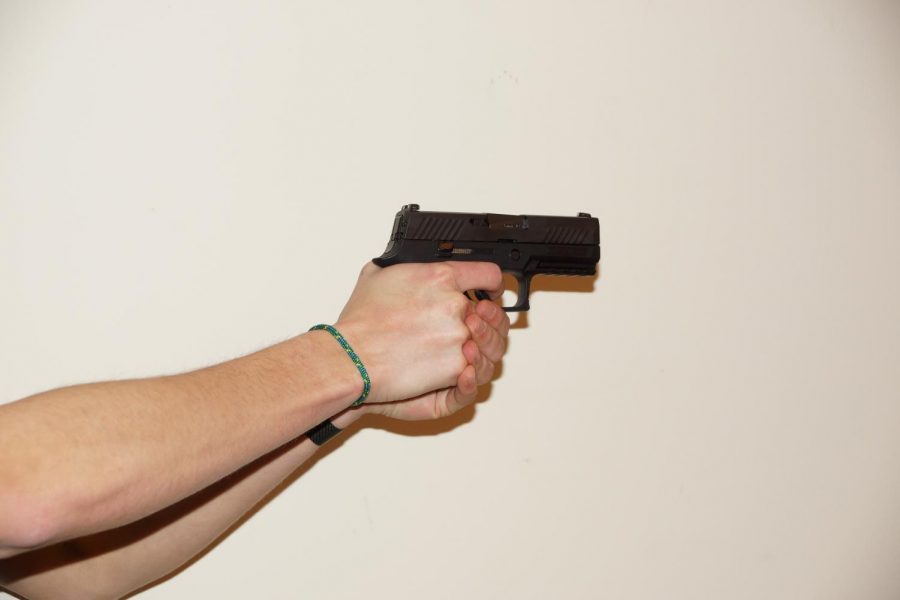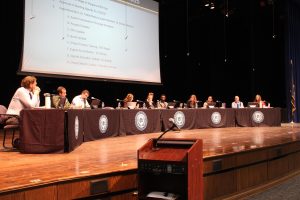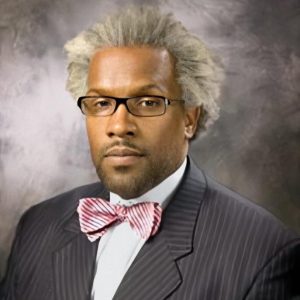Schools in, guns out
December 11, 2017
Michigan Senate passes bills to allow guns in schools, bars and churches
The Michigan Senate passed three bills on Nov. 8 that, if put into effect, would allow licensed gun owners with an enhanced Concealed Pistol License (CPL) to carry concealed guns in places which normally ban them, such as bars, churches and schools.
Specifically, these were Senate Bills 584-586, passed with a 25-12 vote. They are currently in the process of waiting to be passed or vetoed by the House of Representatives.
If these bills become law, citizens wishing to carry a concealed weapon would be required eight additional hours of additional training in order to obtain the enhanced CPL.
Grosse Pointe South High School government teacher, Dennis Pascoe, believes these bills were passed because of the various mass shootings that have recently occurred across the country.
“The fear of going back to Sandy Hook and Columbine (shootings)…you want your children to be protected,” Pascoe said. “I think the hope is that the person who has the gun would be well-trained.”
Pascoe said although that is the ideal scenario, it isn’t always going to be that way.
“The imperfect scenario is what if there’s the person that isn’t well-trained,” Pascoe said. “That’s what concerns me.”
According to Pascoe, the vote went straight down party lines. The 25 who voted for the bills were Republicans, and the 11 of the 12 senators who voted against the bill were Democrats.
“Instead of going down partisan lines we all have to kind of sit down and get rid of those ideas and just go ‘What’s in the best interest of kids?’…’What’s in the best interest of society?’” Pascoe said.
Pascoe said these bills make him nervous and uncomfortable as a teacher. He thinks schools are not the place for guns.
“I understand the need to want to protect the schools but there are other ways we can do that without bringing guns into the school,” Pascoe said. “I don’t like the thought of guns being in a place where kids are. I have two little boys in elementary school and I would not want them to be in a classroom with a person that has a gun.”
Chad Hepner, a U.S history teacher at South, said in certain situations it may be okay for highly trained individuals to have guns in places like schools.
“I think in some ways it would be safer, if something were to occur, to have people that are trained and armed there to protect students but I think there is also a potential for it to go the other way,” Hepner said.
According to Hepner, if these bills did become law, it wouldn’t bring that much of a change to schools.
I don’t think that most people, as it applies day-to-day, would choose to get the training or carry in schools,” Hepner said. “I don’t see it being as impactful.”
Hepner said he is in favor of the additional training required if the bill were to become law, yet he believes it is a difficult issue.
“My personal opinion is most of the time gun violence happens it’s not by the people that are the law-abiding citizens, able to legally carry guns, it’s people that are already breaking the law.” Hepner said.
Hepner has his CPL and said he does believe in the Second Amendment, yet he recognizes the concern many people have when it comes to these bills.
“I think it’s a valuable debate,” Hepner said. “It’s important for people to be able to talk about these things and see both the benefits to having more protection and the risks to having guns in the proximity of a large number of civilians.”
Michael Rennell, government teacher at South, said these bills, if made law, would make schools a more dangerous place. He thinks they got passed because some people believe having guns makes increases safety.
“To some extent, you can see their logic, but in this situation you have it in bars and churches and schools…it’s just not a good idea,” Rennell said.
Rennell said schools could not make any rules that disobey the law if the bills are put into effect. Schools would have very little say in it.
“It says right in the state law that schools can’t make any rule that supercede the law,” Rennell said. “If the law passes as long as you meet those extra expectations you’ll be able to carry concealed in school.”
Rennell, Pascoe and Hepner all believe the bills will most likely not get approved by Michigan Governor Rick Snyder. According to Pascoe, Snyder vetoed a bill very similar to this one back in 2012.
“I would hope he would do the same thing because this one was passed right after the most recent church shooting in Texas,” Pascoe said.
Hepner thinks the bills will be vetoed because the people who are against it will speak louder than those who are for it.
“In the end, right or wrong, people are going to look at it from the standpoint of ‘we can’t have guns in schools because of the potential for disaster’,” Hepner said.
Pascoe said if this bill is implemented, it would spark a discussion within South and the Grosse Pointe community.
“It’s going to lead to a very large discussion on who can bring weapons in and who can’t,” Pascoe said. “While there’s nothing changing it, a large discussion would have to happen within the community, along with the teachers and the school district.”














































































